Grumet: Austin women's clinic fights for its patients — and its future — in post-Roe world
Alison Auwerda was no longer pregnant. The medication abortion pills she ordered online, in spite of Texas’ ban on such things, had worked.
But an ultrasound confirmed what the cramping suggested: Her body had not expelled the last remnants of tissue from the terminated pregnancy.
“I'm like, Can I go to the hospital? Can I tell my doctor? My first thought was like, ‘Oh, I have to get a flight and go somewhere else,’” Auwerda, 39, told me.
Instead, she was on an exam table Monday at the Austin Women’s Health Center, one of the last clinics in Texas that provides in-house, post-abortion medical care — meeting a need that hasn’t disappeared just because Texas abortion services have. In some cases, Texans managing their own terminations or returning from out-of-state procedures need follow-up care, but finding it can feel daunting in a state that has criminalized abortion itself.
I spoke with Auwerda shortly before her dilation and curettage, or D&C, procedure to remove the rest of her uterine lining, a procedure that Dr. L.L. “Tad” Davis performs in his South Austin clinic instead of sending patients to a more costly surgical center. A grant from the Lilith Fund covered the bill.
“I feel so lucky. I mean, it's incredible,” said Auwerda, beyond relieved that she found this clinic in this moment.
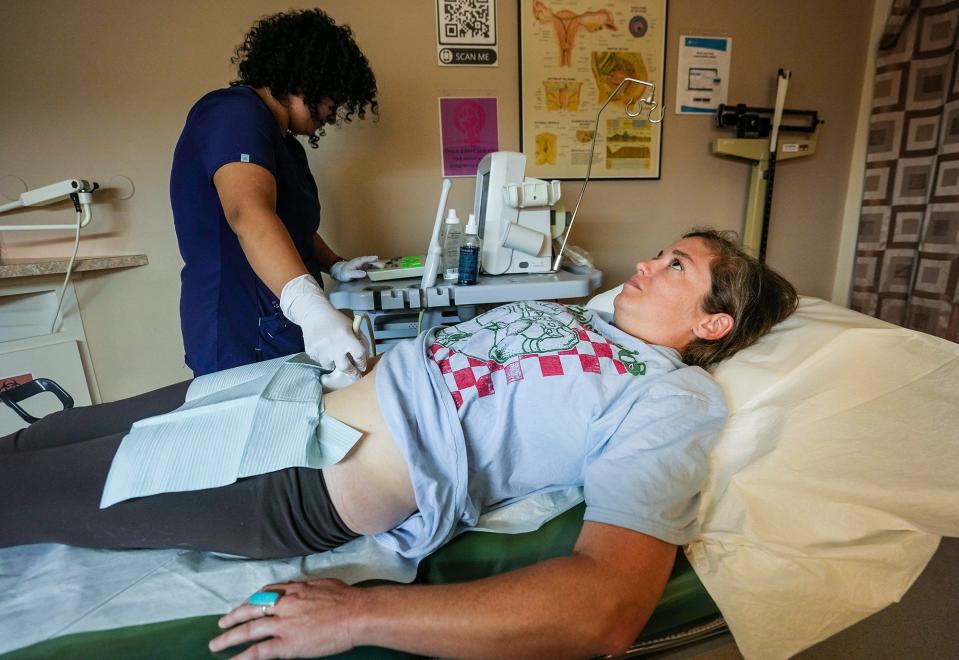
But the medical center that came to her rescue is fighting for its own future, too. Austin Women’s Health Center is a former abortion provider that stopped providing abortions because of Texas laws. The clinic, once staffed by about 20 people, is down to six employees after attrition and layoffs. Now a GoFundMe crowdfunding campaign urges donors to “Save Central Texas’ last indie reproductive clinic.”
Davis founded the practice, known to some patients as Brookside Women’s Medical Center, in 1976 to provide the full spectrum of reproductive health care, from birth control to menopausal care. But a sizable part of the practice was providing abortions — until Texas banned the procedure last year.
In 2021, what former clinic director Julie Smith called the last normal year, the clinic saw a total of 6,000 patients: about 3,600 for abortions and 2,400 for nonabortion care.
In the past 12 months, that fell to just 3,000 patients, all for nonabortion care.
The practice is pursuing grants and deepening its focus on other services, such as post-abortion care, miscarriage management and early pregnancy counseling, as some OB/GYNs are so booked they can’t see patients until 10 to 12 weeks into the pregnancy.
“The goal is to become solvent,” said Smith, who eliminated her own job as part of the recent cost-cutting efforts and now helps as a volunteer consultant. “We’re just trying to make it so we can keep seeing patients and keep going.”
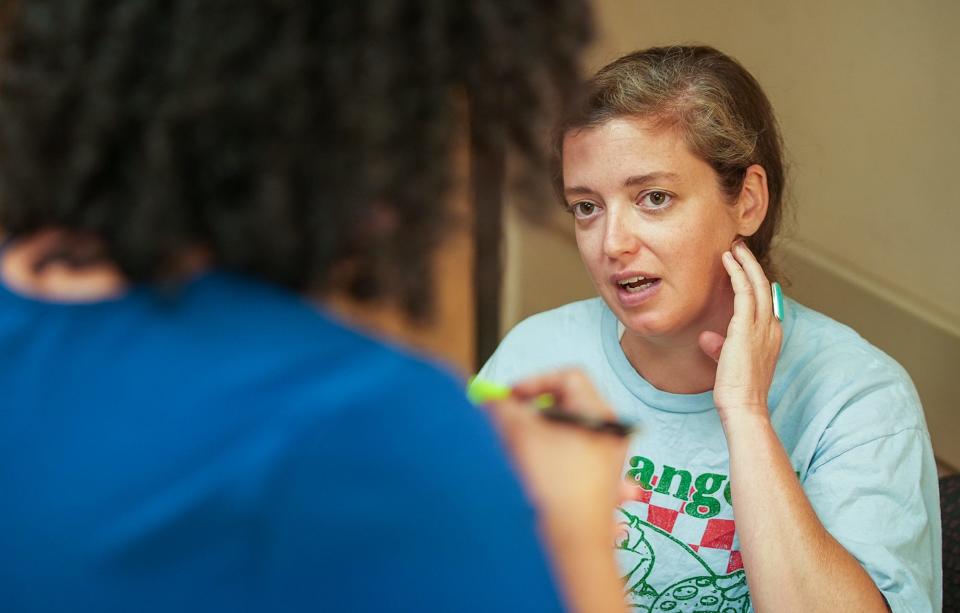
Other providers affected, too
The Austin Women’s Health Center is grappling with the same economics that prompted another provider, Austin-based Whole Woman’s Health, to shutter all four of its Texas clinics last year. In addition to providing abortions, Whole Woman’s Health had provided pap smears, ultrasounds, morning-after pills and long-acting reversible contraception to thousands of patients.
But providing those services alone “was not sustainable without also offering abortion care services,” Jared Lathrop, communications director of Whole Woman’s Health, told me.
With Texas having the nation’s highest rate of uninsured patients, many struggle to afford basic gynecological services. Those who use the state-funded Healthy Texas Women program to access family planning services can’t go to any provider who “performs or promotes elective abortions.”
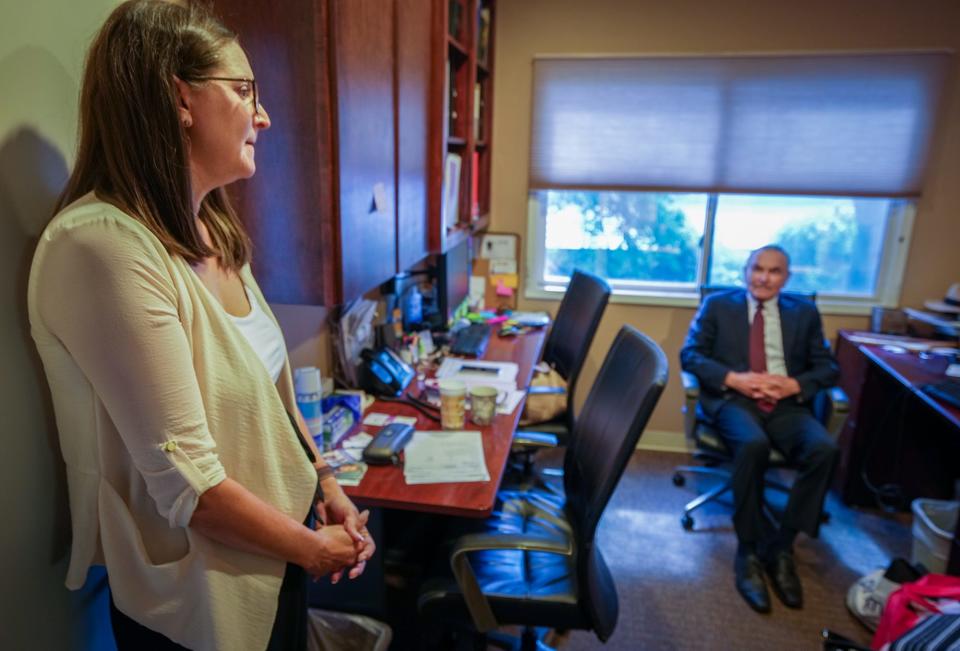
Whole Woman’s Health, which has a clinic in Albuquerque, N.M., still answers its Texas phone lines to provide referrals and support for patients seeking out-of-state abortions.
Meanwhile, Planned Parenthood still operates four clinics in Austin, providing birth control; breast and cervical cancer screenings; STI testing and treatment; HIV testing and medication management; gender-affirming hormone therapy; and other services. But it does not provide the kind of post-abortion care that Auwerda received at Austin Women’s Health Center.
“For Texans seeking information about abortion, sonograms accompanied by medical expertise instead of a religious agenda, and time-sensitive miscarriage management, Austin Women’s Health Center is a vital health care resource,” said Sarah Wheat, chief external affairs officer for Planned Parenthood of Greater Texas.
Continuing with the fight
Providing emotional support is also part of the job, said Ginger Ridout, an advanced nurse practitioner who has been with Austin Women’s Health Center for 16 years.
“Some people just need a hug and to be told they’re valuable, and they get that here,” she said.
Ridout spends much of her time assisting patients with birth control. She said demand has soared for long-acting reversible contraception, such as intrauterine devices or Nexplanon, a hormonal device inserted in the upper arm.
“What I see now is fear, just absolute fear of getting pregnant and having no way out without significant expense and travel,” said Ridout. “It’s sad to see that.”
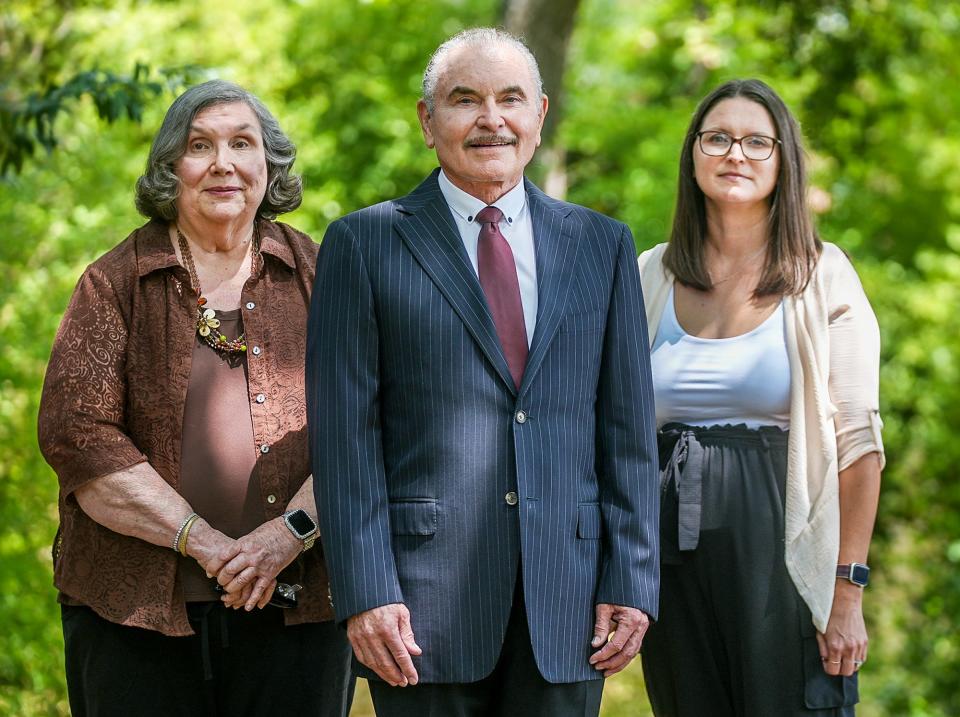
Davis, who still provides medical care but no longer draws a salary, founded the clinic on the idea that care should be centered around the patient’s needs. In a different era, that meant being an early proponent of allowing fathers in the operating room during a cesarean section. Now it means providing timely care for patients having a miscarriage, so they don’t have to wait to develop sepsis before a medical professional will intervene.
“We need to continue on with our fight to help give service to the women of Texas who need it,” Davis told me from his office facing the bustling traffic along Interstate 35.
At the other end of the hallway, Auwerda sat in an exam room, completing the forms for her procedure. A purple sign addressed the unspoken anxiety in many OB/GYNs' offices now: “This is a SAFE space to talk about your pregnancy options.”
Auwerda had to figure out how to handle her unplanned pregnancy on her own. “It's a difficult experience no matter what,” she said.
But she worries even more for those who don’t have the post-abortion care she found.
Grumet is the Statesman’s Metro columnist. Her column, ATX in Context, contains her opinions. Share yours via email at bgrumet@statesman.com or via Twitter at @bgrumet. Find her previous work at statesman.com/news/columns.
For more information
Visit austinwomenshealth.com for information about the Austin Women's Health Center. The center's fundraising effort is at gofundme.com/f/protect-reproductive-care-support-awhc.
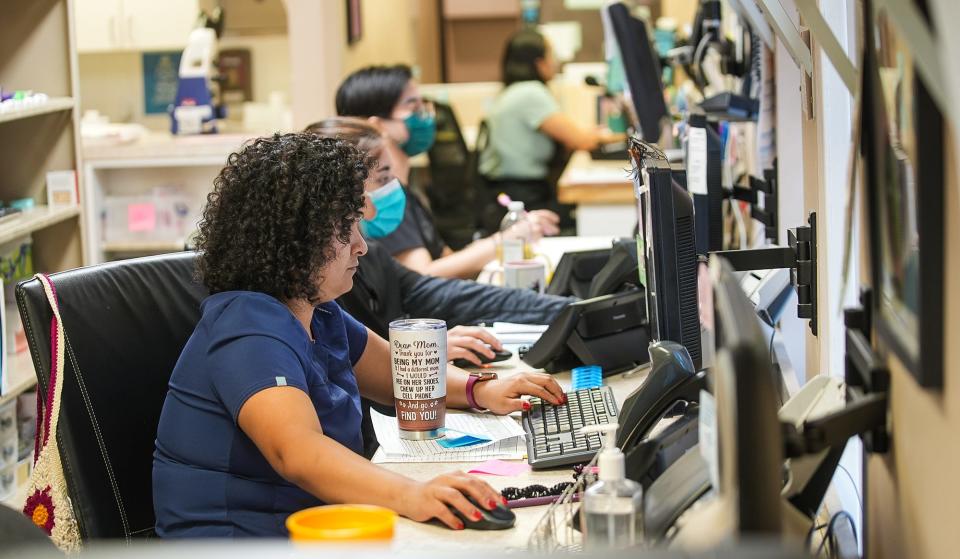
This article originally appeared on Austin American-Statesman: Grumet: Austin Women's Health Center fights for its future

